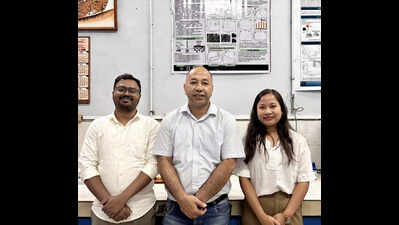- News
- Nagaland varsity team develops aminated graphene technique
Nagaland varsity team develops aminated graphene technique
Guwahati: A research team led by Nagaland University developed an innovative and economical technique for creating an advanced material used in ‘supercapacitors', which are next-generation energy storage devices.
These devices are notable for their quick charging capabilities and substantial energy storage capacity, unlike conventional batteries. They are considered a viable solution for meeting increasing demands for efficient and sustainable energy systems. However, the high costs of electrode materials have limited their widespread adoption, despite being crucial for performance.
The research aligns with India's emphasis on environmentally conscious technologies and clean energy. The team developed a novel approach to produce aminated graphene from reduced graphene oxide. This method is cost-efficient and faster than conventional processes, with the resulting material showing favourable electrochemical properties. The research secured an Indian patent and is ready for potential commercial application.
The collaborative effort involved researchers from Nagaland University, Visvesvaraya Technological University, Karnataka, and Nagarjuna College of Engineering and Technology, Karnataka. The team comprised Suraj Kumar, Prof Dipak Sinha, Prof Dinesh Rangappa, Priyakshi Bora, Kunal Roy and Navya Rani M. Their findings appeared in iScience, an open-access Cell Press journal covering various scientific disciplines.
End of Article
Follow Us On Social Media











